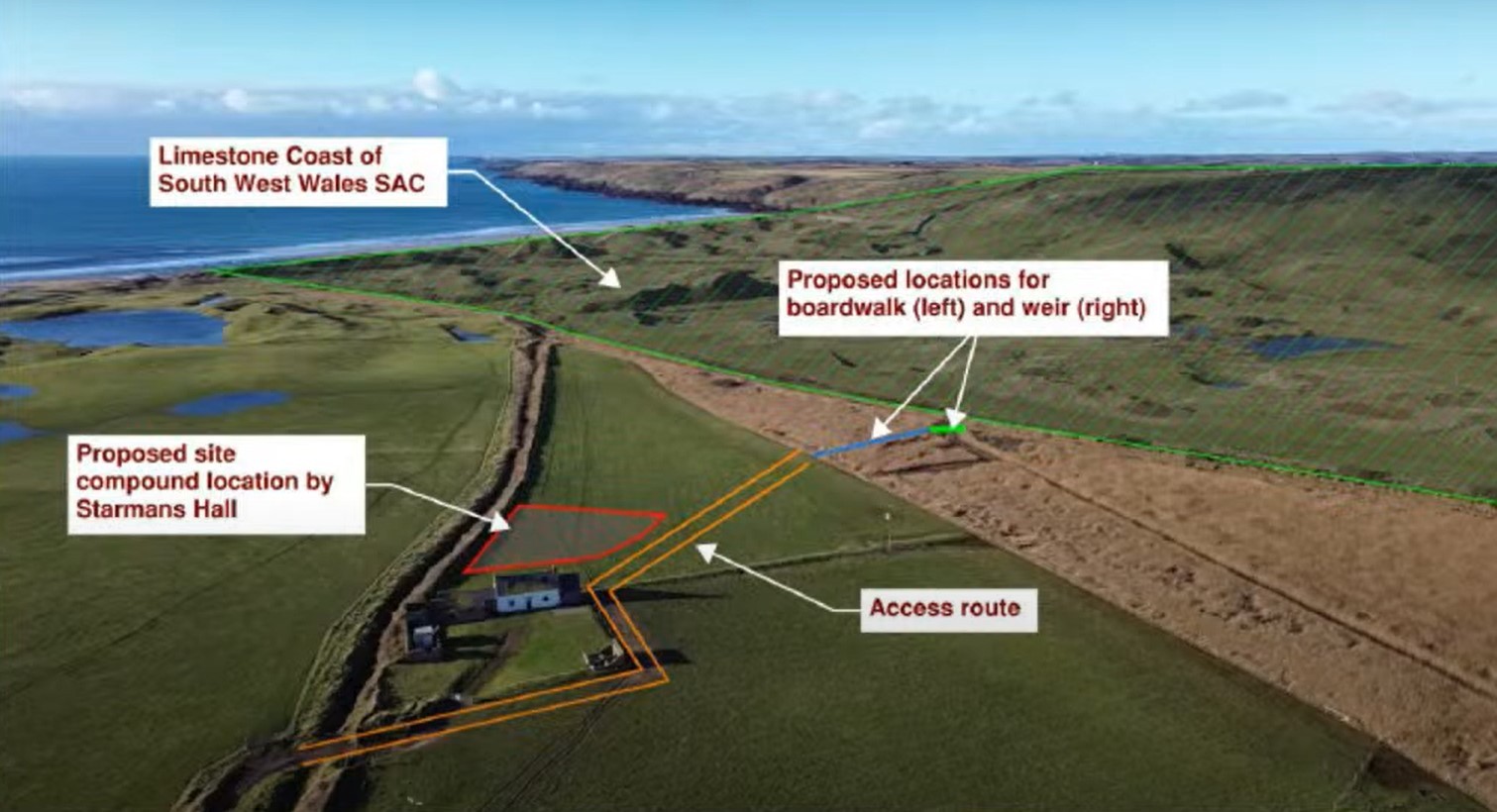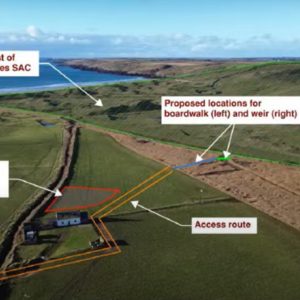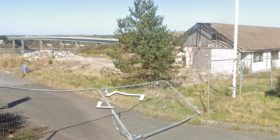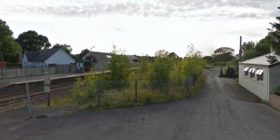National Trust’s Plans for Tilting Weir and Walkway Approved Despite Concerns

National Trust plans for a tilting weir and walkway in south Pembrokeshire have been approved by the national park despite concerns it could impact historic dyke-drained land.
The National Trust sought permission for the installation of a tilting weir, walkway structure and boardwalk at Castlemartin Corse, Starmans Hall, Castlemartin in an application recommended for conditional approval at the September 4 meeting of Pembrokeshire Coast National Park’s development management committee.
A report for members stated: “The National Trust have been looking at potential wetland restoration opportunities at Castlemartin Corse Site of Special Scientific Interest (SSSI), which is part of the National Trust’s property at Gupton Farm, Pembrokeshire.
“The primary aim is to restore and establish carbon rich habitats within the SSSI. To enable this, it is proposed to install a water control structure in the form of a tilting weir within the main river that flows through the SSSI reedbed and connects to the Castlemartin Coast Special Area of Conservation (SAC).
“Attached to the tilting weir would be a walkway, and a boardwalk is also proposed to allow maintenance access to the weir. The site is in a sensitive location within the SSSI, Pembrokeshire Coast National Park, the South Pembrokeshire Coast National Landscape Character Area (NLCA).”
It concluded: “The proposed scheme would involve the creation of habitat, increase the diversity of species and condition of the watercourses.”
The walkway and board walk are for access and maintenance only and will not be open to the public.
Concerns were raised at the meeting by local county councillor Steve Alderman, who said: “It does affect a historic civil engineering project of over 230 years old, a piece of ground was drained by Lord Cawdor and Alan Mirehouse, in the late 1790s.”
He said the land drained by a series of dykes has “worked wonderfully well over the years,” and was used to grow food in the Napoleonic wars and the two world wars, even proving to be the only green area locally in times of heavy drought.
“If this tipping weir is in it’s going to end up holding back floodwaters, it has lasted 230 years, other human intervention is going to probably be not positive and very short-sighted,” he told committee members.
After members raised concerns on the potential impact on adjoining land, the scheme was conditionally approved.
By BBC LDRS
Spotted something? Got a story? Email News@News.Wales











